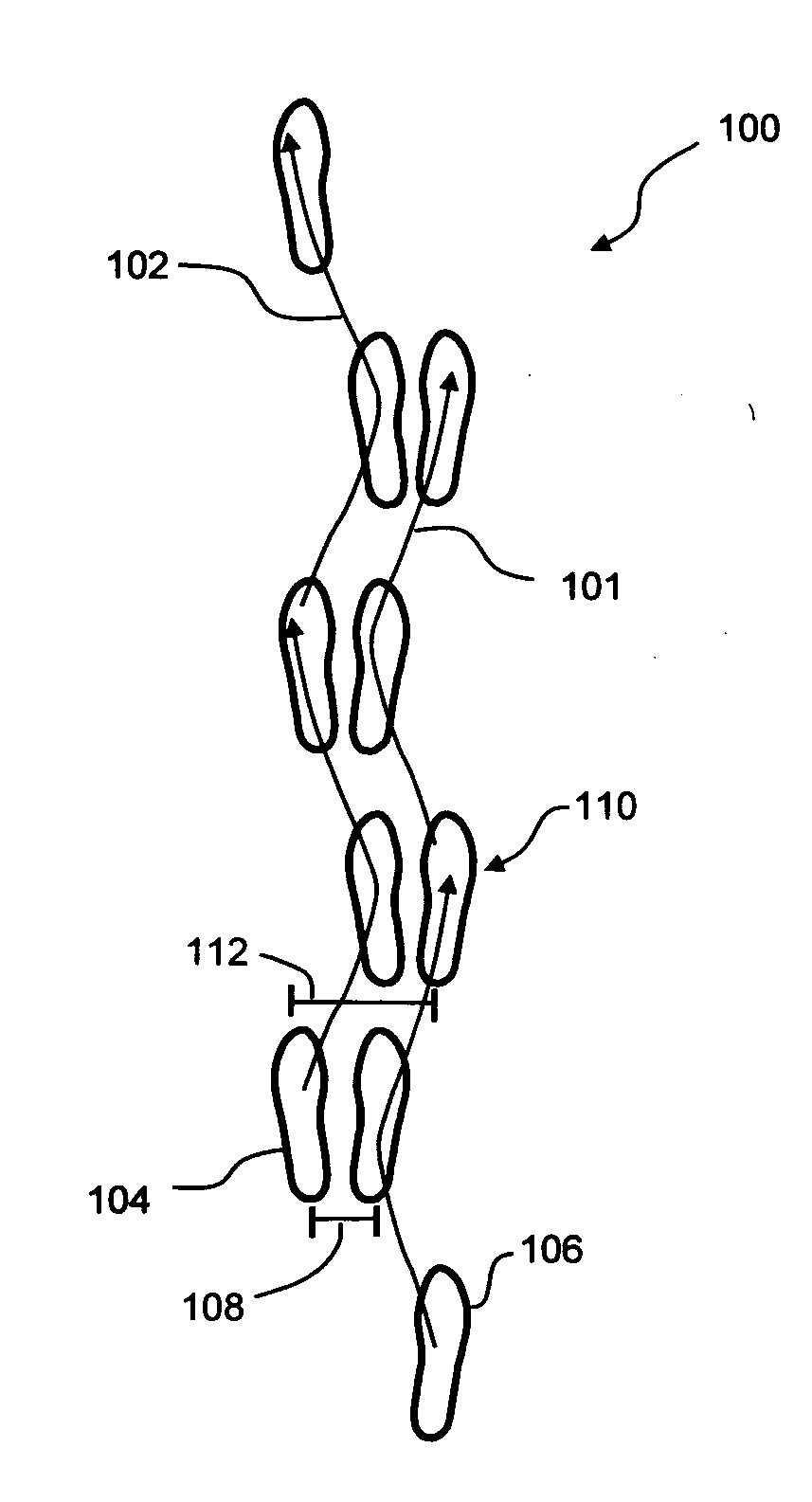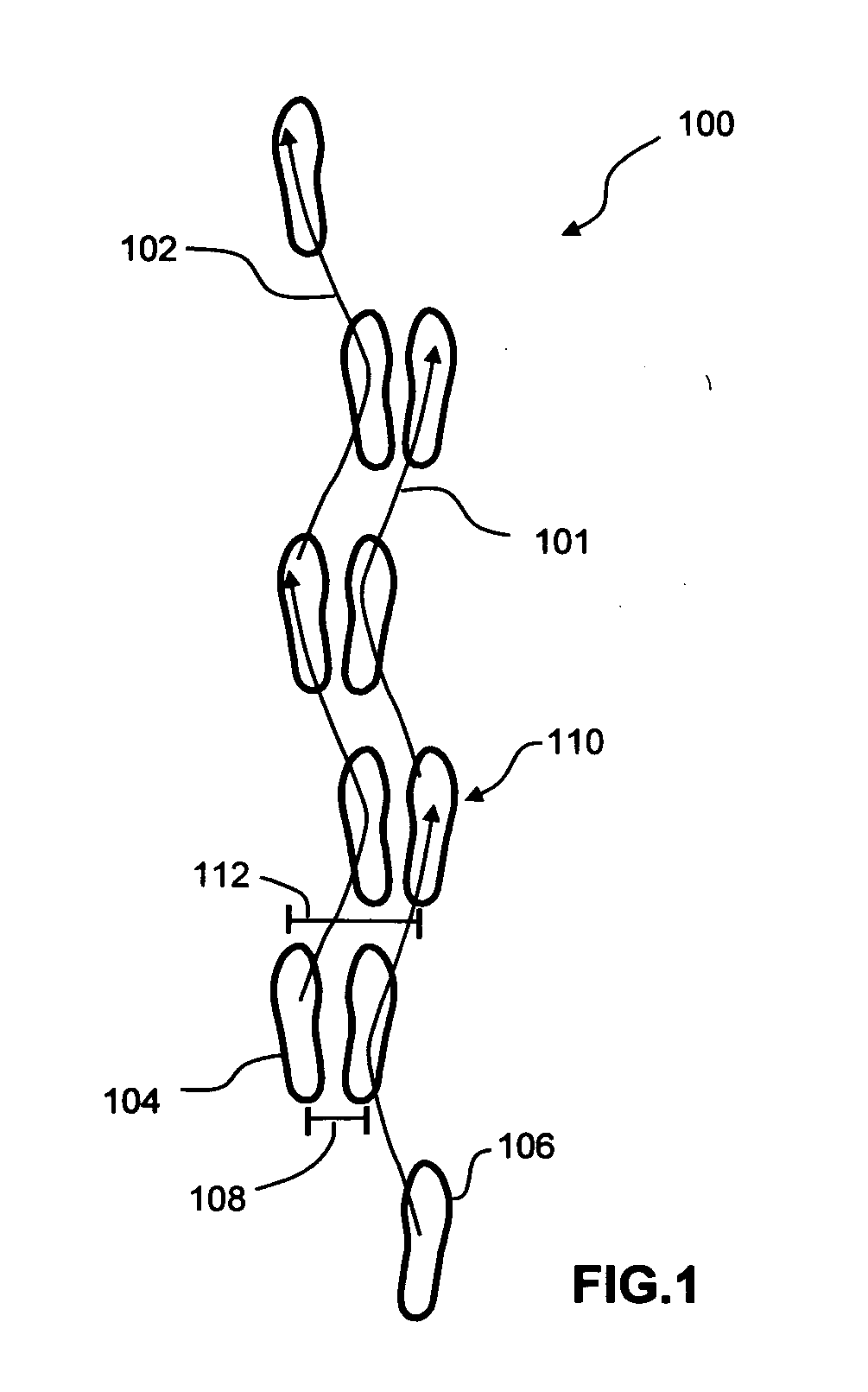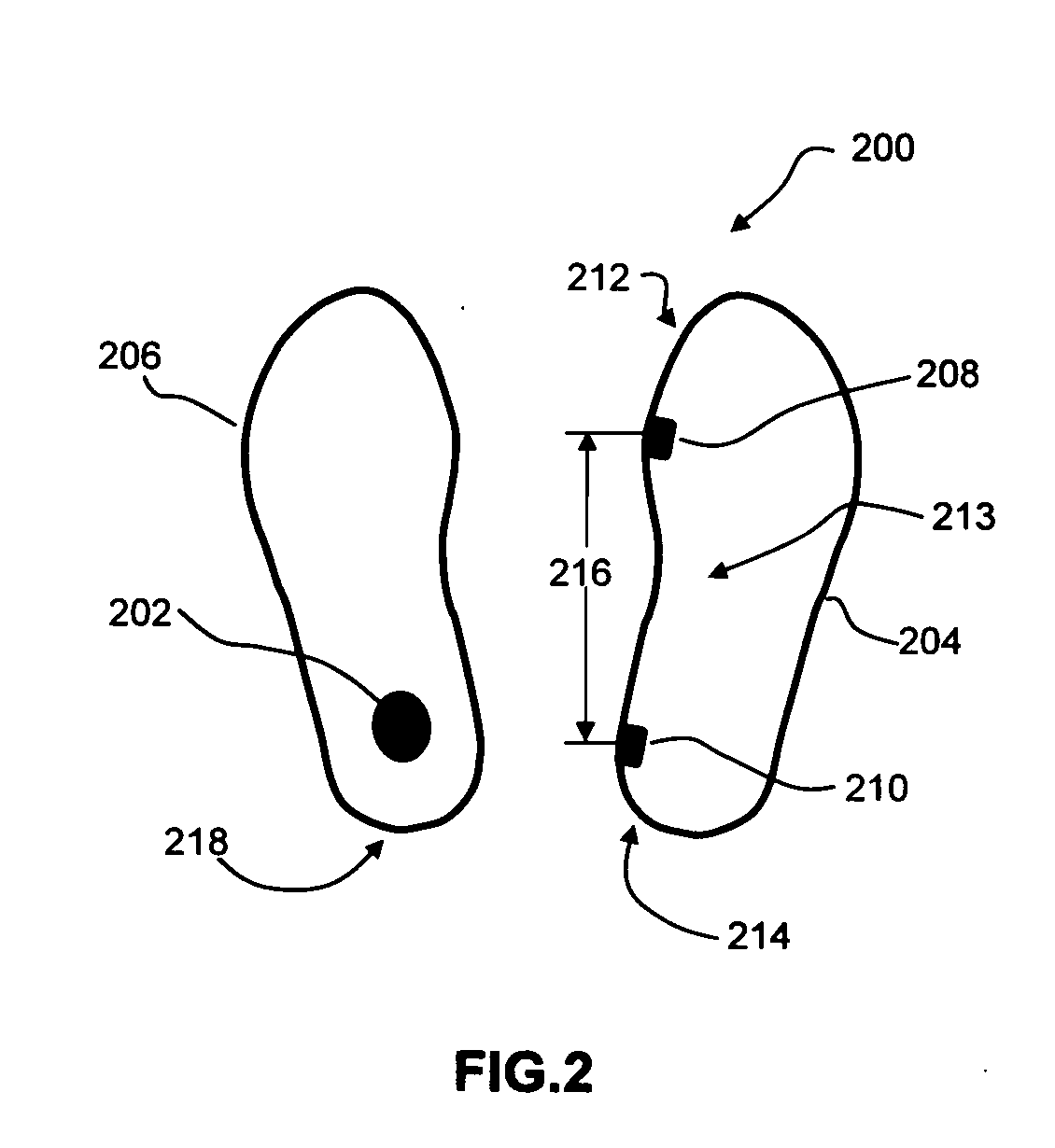Pedometer with shoe mounted sensor and transmitter
a pedometer and transmitter technology, applied in the field of pedometers, can solve the problems of inability to accurately measure the switch is prone to contamination in situ, and the accuracy of the pedometer is adversely affected, so as to reduce the false step count reading, reduce the false step count, and improve the accuracy.
- Summary
- Abstract
- Description
- Claims
- Application Information
AI Technical Summary
Benefits of technology
Problems solved by technology
Method used
Image
Examples
Embodiment Construction
[0023]Turning now to the drawings, FIG. 1 is a schematic view of a typical bipedal walk cycle 100. As seen in this Fig., a typical human or bipedal walk cycle 100 for generally linear forward motion incorporates a right foot sinuous path 101 and a left foot sinuous path 102. When both the right and left foot sinuous paths 101, 102 are combined, a biped walk cycle 100 producing forward generally linear motion is achieved. To begin a walk cycle 100, a forward foot 104 carries the majority of the weight of a person. The rearward foot 106 is then lifted and moved in a generally forward direction, as indicated by the directional arrows. As the rearward foot 106 moves towards the forward foot 104, the motion of rearward foot 106 curves inwards towards the forward foot 104 to form an arcuate path. A minimum interspatial distance 108 between the two feet 104, 106 is defined when the initially forward foot 104 and the initially rearward foot 106 achieve a minimum separation distance. At this...
PUM
 Login to View More
Login to View More Abstract
Description
Claims
Application Information
 Login to View More
Login to View More - R&D
- Intellectual Property
- Life Sciences
- Materials
- Tech Scout
- Unparalleled Data Quality
- Higher Quality Content
- 60% Fewer Hallucinations
Browse by: Latest US Patents, China's latest patents, Technical Efficacy Thesaurus, Application Domain, Technology Topic, Popular Technical Reports.
© 2025 PatSnap. All rights reserved.Legal|Privacy policy|Modern Slavery Act Transparency Statement|Sitemap|About US| Contact US: help@patsnap.com



